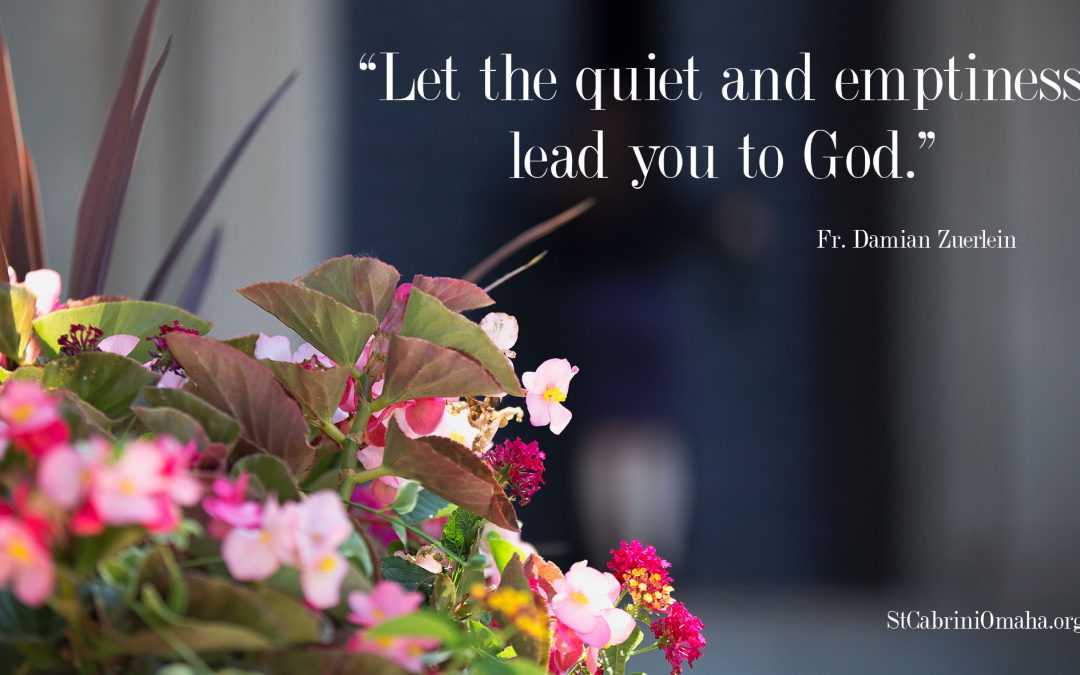Dear Friends,
Whenever I watch British television, the different ways they use the English language strikes me. One of those is the use of the word “holiday” when talking about taking time away. They are off on a “holiday.” The origin of the word “holiday” comes from holyday, which is a medieval marriage of two Anglo-Saxon words, one from the realm of the sacred, “holy” which means to be set apart for things pertaining to God. It is the fact that the thing is given to God that makes something holy. The other part comes from the world of the ordinary, “day” simply measures a twenty-four hour period. To go on holiday, then, carries connotations of both feast and festival, reverence and play, heaven and earth.
That is very different from our use of “vacation.” That word is derived from the Latin vacare, which means to be empty, idle, unoccupied. It connotes that we have emptied the calendar out, but gives no indication of what has filled it instead. Our struggle to make “time off” a time of flourishing instead of being wasted time is a modern twist on the classical pursuit of leisure. For the ancient philosophers (especially as articulated by Aristotle), leisure time was time in which humans would freely pursue those things that make them human, that set them apart from the beasts: art, music, poetry, sport, fellowship, contemplation, worship. Leisure for them was not the whole of life, but it was the goal of life.
One of the great books describing all this is Josef Pieper’s Leisure, the Basis of Culture, which I first read in a philosophy class while I was in college. In it, he bemoans the struggles of modern life, which make leisure difficult and cause problems with the creation of culture. He says we have lost a sense of wonder that allows us to be truly human. He also thinks we will never be able to find God until we can practice true leisure. The greatest obstacles, however, exist in our own souls: laziness, inability to love the good, lack of will to pursue it. The struggle to find leisure is not new. From the time of Aristotle until now the struggle remains. Here is an interesting passage from an essay I read recently. It was originally written in the 1930’s:
It is common knowledge that, wherever it can be said to exist at all, the kind of leisure provided by industrialism is a dubious benefit…The furious pace of our working hours is carried over into our leisure hours, which are feverish and energetic. We live by the clock. Our days are a muddle of “activities,” strenuously pursued. We do not have the free mind and easy temper that should characterize true leisure. Nor does the separation of our lives into two distinct parts, of which one is all labor—too often mechanical and deadening—and the other all play, undertaken as a nervous relief, seem to be conducive to a harmonious life. The arts will not easily survive a condition under which we work and play at cross-purposes. We cannot separate our being into contradictory halves without a certain amount of spiritual damage. The leisure thus offered is really no leisure at all; either it is pure sloth, under which the arts take on the character of mere entertainment, purchased in boredom and
enjoyed in utter passivity, or it is another kind of labor, taken up out of a sense of duty, pursued as a kind of fashionable enterprise for which one’s courage must be continually whipped up by reminders of one’s obligation to culture. (from “A Mirror for Artists,” by Donald Davidson)
Nothing new. The problem was there in the time of Aristotle, in the 1930’s and is there today. I think of this during these summer days when many of us find a bit more time to experience leisure. So my question to you is, how are you spending your free time during these long summer days? Are you bored? Do you mindlessly watch TV; scan Facebook and Pinterest; chatter about the latest political mess or do you sign up for too many summer camps, sports teams, special events, and ensure that no day is left unscheduled?
None of those things are necessarily bad, but might I suggest, from the view of Pieper, that rather than hurrying with the perpetual rush, practice stillness in the midst of it. Find a way to pause in the midst of the busyness and appreciate the wonder that surrounds you. You might be surprised by how much more human you feel by spending ten minutes of sitting quietly outside or walking without your iPhone or reading a short poem or standing still to look at a beautiful sunset or praying for longer than a few seconds before a meal. By finding a space away from the busyness, we can begin to find ourselves and to find our God. It is not necessary to fill the quiet and the emptiness with activities. Let the quiet and emptiness lead you to God.
Peace,
Fr. Damian



